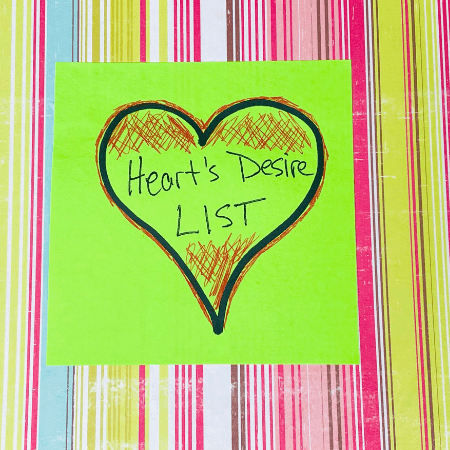This is the fourth post in my series exploring Core Principles in my philosophy of teaching. Today’s post is about cultivating ENJOYMENT at the piano.
When I was choosing topics for this series on my philosophy of teaching, I realized that ENJOYMENT needed to be on my list of core principles because if you’re serious about the piano, playing the piano HAS to be enjoyable. This is non-negotiable.
Missed the rest of the series? Catch up here: Series Kickoff Part 1: Developing Ease at the Piano Part 2: Improving Your Listening Skills at the Piano Part 3: Playing Expressively at the Piano
My story….
I started taking piano lessons at the age of 4, and now I’m a university piano professor. Needless to say, I’ve been playing a looooong time by now. Playing the piano has brought me a lot of pleasure over the course of my life. And the piano has played different roles for me at different stages in my life.
Over these past decades, my relationship with the piano has sort of become like a relationship to a friend or family member that I’ve known for a very long time and is woven into the fabric of my life. And actually, when I have a period of time when I can’t practice, for whatever reason, like maybe I’m traveling or too busy with other things, I just feel “off” and a little down. I find that I can always solve this by going back to the piano.
The secret a lot of professionals don’t talk about
But I’m gonna be honest with you: sometimes I just don’t feel like playing the piano. I want to procrastinate or simply blow it off. And when that happens, I have to go back and remember “why” I play the piano. That’s what helps me cultivate ENJOYMENT.
To cultivate enjoyment, find your “why.”
It’s super important that you have a strong enough REASON for playing to piano to get yourself through the tough times. Some people call this “Finding your Why.” In this case, your “Why” is the purpose behind playing the piano. What drives you? What meaning do you derive from it?
The answer is different for everybody. I asked my students for some of the reasons THEY enjoy playing the piano. Here are some of their answers:
- To connect with other people
- To take a break from the other other things going in their life
- To de-stress or relax
- Because it’s something just for them
- Because they think the music is beautiful
- Because they like to share their music with other people
Those reasons might resonate with you, or you might have different reasons of your own. It’s important that you think about what YOUR reasons are.
What is YOUR “why” for playing the piano?
Even if you are really committed to playing the piano, it’s completely normal to go through periods of low motivation. When you do any activity over the course of many years, you will naturally experience cycles of increasing and decreasing pleasure and drive.
Seven suggestions for cultivating enjoyment at the piano:
Here are my suggestions for regaining your motivation and cultivating enjoyment at the piano if you hit a slump:
1. Keep the end result in mind.
Learning to do anything really well takes a lot of practice. And there will be times when it really feels like a grind. It WILL feel like work.
That’s why it’s important to remember WHY you’re doing it.
For example, if you’re doing something that feels tedious, like learning notes, the reward will come after you get to the point where you can play it smoothly. Several of my students reported to me that they’re able to push through the grind by reminding themselves that it’s going to be fun when they get to the point where they can play it smoothly.
Remember the thing you love the most about playing the piano, whether it’s the feeling of mastery that comes with it, the fact that your music brings pleasure to other people, your fascination with the process of learning, or whatever “WHY” you have.
2. Choose music you love to play.
There is SO MUCH repertoire written for piano – with a little exploration, it should be easy to find works you feel excited about playing.
I recommend to my students that they keep a “Heart’s Desire” list – which is a list of pieces you’d love to play someday. You can update it whenever you hear or come across a piece that you love, so when you’re looking for something new to learn, you can start by reviewing that list.

3. Work on a variety of pieces.
Another way to cultivate enjoyment at the piano is to work on a variety of pieces, ranging from something you have just started through something that is polished and ready to perform. If your motivation is low while you’re learning notes for a new piece, reconnect with the sheer enjoyment of playing the piano by taking a break from that and playing something you already know that’s fun to play. Or, if you love to improvise or compose, take a break from the other aspects of your practicing to spend some time doing that.
4. Be playful.
“Gamifying” your practice is a surefire way to cultivate enjoyment at the piano. To gamify something means, literally, to turn it into a game. (After all, we do call it “playing” the piano rather than “working” the piano!) This strategy doesn’t work for everyone, but if you’re somebody who responds well to metrics and mini-challenges, you can use that to your advantage. Come up with some game-like rules to make it fun.
This will usually involve creating a series of challenges for yourself during practice, like: trying to do something a certain number of times in a row, working something up to a specific number on the metronome, or spending a certain number of minutes on each section before moving on.
5. Change it up.
Don’t get stuck in the same routine all the time – you don’t want to always practice the same way. Think of practicing like going to the gym. It’s not very exciting to do the exact same exercise routine day in and day out, month after month, year after year. Right? The human brain loves novelty. When you practice, try different warm-up routines, work on your music in a different order from one day to the next, try new practice techniques, and work on different skills. Find ways to vary your routine.
6. Don’t go it alone.
Find other people who enjoy playing the piano too, and let the community motivate you, because if you’re going through a motivational slump, there will be somebody else in the group who will be more motivated and can help pull you out of it.
7. Play for yourself, not to please other people.
Of all the strategies on this list, this is the most important.
The idea of playing for yourself may seem counter-intuitive, given that we’re performers who play for other people (a.k.a., an audience). Additionally, holding on to this mindset can be especially challenging when you’re preparing for things that are going to be evaluated, such as auditions or competitions.
But, at the end of the day, your music-making has to come from your own heart, expressing your own self. If you start down the path of playing the piano solely in order to receive accolades or approval, that’s a path that will eventually suck all the enjoyment out of playing the piano.
Focus on the process of daily practice, not the outcome. Try not to compare yourself to others. And, be kind to yourself.
Remember: playing the piano is about self-expression and there is something just so pleasurable about the experience of making music. If you approach it like that and keep the focus on pleasing yourself, then if somebody doesn’t choose you at an audition or competition, or doesn’t like your playing, it won’t matter as much. The only person you need to satisfy is yourself, since you live with yourself 100% of the time.
Conclusion
So those are some of my thoughts on Cultivating Enjoyment at the Piano. This is one of my core principles and lies at the heart of my own playing and philosophy of teaching. It’s so important to enjoy what we do!
I love hearing from you: What is your “WHY”? Let me know some reasons YOU enjoy playing the piano in the comments below! Happy practicing!
VIDEO: Cultivating Enjoyment at the Piano
Share this article
